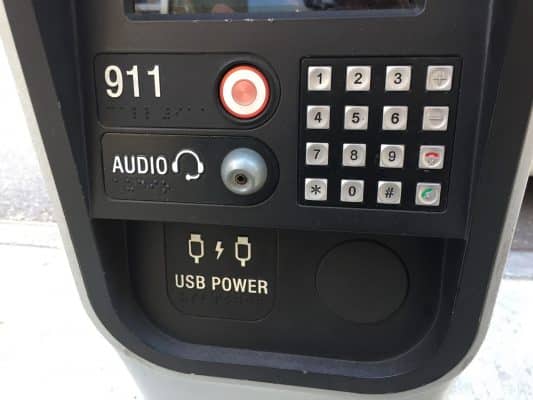
February 27, 2024 Update
Analysis 2/27 by William D. Goren, lawyer.
Previously, we have blogged on a case involving Julian Vargas and the inaccessibility of kiosk equipment used by Quest diagnostics. It turns out that he is involved in a similar case involving Laboratory Corporation of America Holdings with another plaintiff, Luke Davis. A district Court in California approved a class under the California antidiscrimination law, Unruh Act, as well as a nationwide class under the ADA. Laboratory Corporation appealed. As usual, the blog entry is divided into categories, and they are: facts; court’s reasoning that Vargas had standing; court’s reasoning that the Unruh act class action as certified by the district court goes forward; court’s reasoning that the district court did not abuse its discretion in certifying the nationwide class under the ADA by determining that a nationwide injunction could provide relief to all members; and thoughts/takeaways. Of course, the reader is free to focus on any or all of the categories.
Summary
- When it comes to class actions, the whole key comes down to whether a class is certified in the first place. If a class is certified in the first place, the stakes go up exponentially. So, it wouldn’t surprise me to see this case head towards settlement rapidly.
- The case is not published.
- Standing for a person with a disability is conferred when the allegations show that the person with the disability was denied full and equal enjoyment of the facility.
- This case makes you wonder why Quest Diagnostics, which we discussed here and which involved the same plaintiff, appealed their case. While this case is unpublished, the facts are essentially the same.
- As mentioned previously, I am involved with the Kiosk Manufacturers Association on an informal basis. There are companies making accessible kiosk and it is a significant point of emphasis of the Kiosk Manufacturers Association.
- It is significant that the court said that full and equal enjoyment of facilities includes effective communication because now effective communication becomes a statutory requirement rather than just a regulatory requirement. That distinction can sometimes be important when it comes to being able to claim a cause of action as not every final regulation can automatically serve as the basis for a cause of action.
- While discomfort, difficulty, or embarrassment was not required in this case, a blind individual having to go through this would certainly suffer difficulty, discomfort, and embarrassment.
- Interesting that the first name on the pleading at the Ninth Circuit is not Vargas but someone else, since Vargas is the subject of the appeal
- One wonders why Lab Corporation litigated all this because my understanding is that fixing the situation with accessible kiosks is not terribly difficult or expensive, especially considering the resources of the defendant, and would certainly be much cheaper than litigating the matter.
LInk to full article — There was an important court order (and a big win for accessibility) from the Ninth Circuit Court of Appeals on February 8, 2024 in the case against LabCorp about check-in kiosks at their medical labs.
The case was filed by the American Council of the Blind (ACB) because the check-in kiosks were not accessible to blind patients.Lawyers representing the ACB are Matt Handley of Handley Farah & Anderson and Benjamin Sweet of Nye, Stirling, Hale, Miller & Sweet LLP
The court ruled that the case can proceed as a national class action for possible injunctive relief (fixing the problem) and as a California class action (for possible money damages to blind people in California who had experienced the inaccessible kiosks). LabCorp had appealed a lower court order arguing that the lawsuit should not be a class action.
Read the June 28 2022 Update below for more information about the lower court’s class certification order.
The case will now continue in the lower court to determine if there is in fact a legal violation and if so, what LabCorp must do to remedy the violation. The Ninth Circuit’s opinion saying this case can proceed as a class action for money damages in California means that LabCorp may have to pay a significant amount of money to blind California patients in addition to making the kiosks accessible.
The Ninth Circuit Opinion in this case is “unpublished” which means it is not binding on other federal courts in the Ninth Circuit like published opinions are. (The Ninth Circuit covers California, Hawaii, Alaska, Guam, Washington, Oregon, Idaho, Montana, Nevada and the Northern Mariana Islands.) Still, it can be cited in other cases, and should serve as a serious wakeup call to any kiosk providers who have not yet considered whether disabled people can use their kiosks.
Read the Ninth Circuit’s Unpublished Opinion in the LabCorp case. [Ignore the first page at this link. Opinion starts on page 2.]




